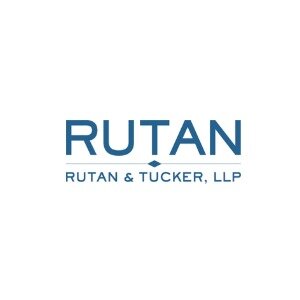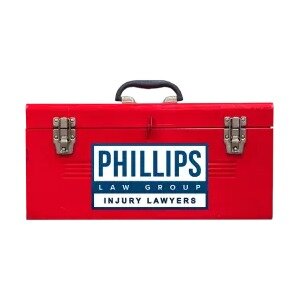Best Mining Law Lawyers in United States
Share your needs with us, get contacted by law firms.
Free. Takes 2 min.
Or refine your search by selecting a city:
List of the best lawyers in United States
About Mining Law in United States
Mining Law in the United States covers the regulation of the extraction and management of mineral resources such as coal, gold, silver, copper, and other valuable materials found on federal, state, and private lands. The legal framework governs who can mine, how claims are established, how land is used, environmental protections, health and safety standards, and the resolution of disputes. The foundation of federal Mining Law is the General Mining Act of 1872, which allows citizens to claim certain mineral resources on public land, but state and local regulations also play a significant role. Modern Mining Law also incorporates a range of environmental, zoning, and reclamation requirements to ensure the responsible use of natural resources.
Why You May Need a Lawyer
There are several scenarios where someone may need legal assistance in Mining Law. These include staking and maintaining mining claims, negotiating mining leases or joint ventures, acquiring permits for exploration or operation, ensuring compliance with complex environmental regulations, addressing disputes over land or mineral rights, dealing with government agencies, or defending against enforcement actions and penalties. Lawyers also assist with title searches, land use issues, royalty agreements, and reclamation plans. If you are considering pursuing a mining venture or are involved in a mining dispute, an attorney with experience in Mining Law can help protect your interests and navigate the regulatory landscape.
Local Laws Overview
Key aspects of local laws relevant to Mining Law in the United States include federal statutes, such as the General Mining Act of 1872, which governs mining on federal lands, and the Federal Land Policy and Management Act, which provides further oversight of public lands. States often have their own mining statutes concerning mineral rights, permitting, and environmental compliance. Local zoning laws may dictate where mining operations are permitted, while federal and state agencies, such as the Bureau of Land Management and state environmental protection departments, enforce safety and environmental standards. Reclamation requirements mandate that mined lands be restored to a usable state after mining operations conclude. All of these laws interact, making compliance a complex but necessary process.
Frequently Asked Questions
What is a mining claim?
A mining claim is a legal right to extract minerals from a specific parcel of public land. The claimant must comply with federal and state regulations and maintain the claim with appropriate filings and annual fees.
Who can stake a mining claim in the United States?
Any U.S. citizen or person who has declared an intent to become a citizen, including certain businesses, may stake a mining claim on federal land that is open to mineral entry.
What is the General Mining Act of 1872?
This federal act allows individuals and companies to explore for, and claim, certain mineral deposits on public lands. It sets out procedures for staking claims and acquiring title to minerals.
Are environmental regulations applicable to mining?
Yes, federal and state environmental regulations apply to mining operations, including requirements for permits, environmental impact assessments, and land reclamation after mining activities conclude.
How are disputes over mining claims resolved?
Disputes can be resolved through negotiation, administrative hearings, arbitration, or litigation in court, depending on the nature of the issue and the parties involved.
Do private landowners control mineral rights?
Not always. In some cases, the ownership of surface land and underlying mineral rights can be separate. It is important to verify the title and any prior conveyances when engaging in mining activities on private property.
What permits are needed to start a mining operation?
The required permits vary by location, type of mineral, and whether the land is publicly or privately owned. Common permits include those for occupancy, environmental impact, water usage, and air quality.
What is land reclamation?
Land reclamation is the process of restoring land that has been mined to a natural or economically usable state, as required by law. This may include replanting vegetation, contouring land, or other measures.
How are mining royalties and taxes handled?
Mining operations are subject to federal and state royalties, taxes, and sometimes local fees based on the type and value of minerals extracted. These financial obligations are part of lease agreements and statutory requirements.
Can foreign entities hold mining claims in the U.S.?
Generally, only U.S. citizens and entities may hold mining claims on federal public land, but foreign companies can partner with U.S. entities or acquire rights through corporate transactions.
Additional Resources
- The Bureau of Land Management (BLM): Provides guidelines and manages mining claims on federal lands - United States Geological Survey (USGS): Offers extensive data on mineral resources and mining locations - Office of Surface Mining Reclamation and Enforcement (OSMRE): Enforces laws concerning coal mining and land reclamation - State Departments of Natural Resources or Environmental Protection: Regulate mining on state and private lands and issue permits - American Mining Rights Association: Advocacy and resources for miners and claim holders - Local Bar Associations: Can refer individuals to attorneys with Mining Law expertise
Next Steps
If you need assistance with Mining Law, start by identifying the specific issue you are facing, whether it is claim staking, permitting, environmental compliance, or dispute resolution. Gather all relevant documents such as deeds, claims, permits, and correspondence. Reach out to an attorney who specializes in Mining Law, preferably with experience in your state or the applicable jurisdiction. You can contact your state bar association for referrals or consult national directories. Be prepared to discuss your goals, timelines, and any past communications with regulatory agencies. Early legal guidance can help you avoid costly mistakes and ensure your mining project proceeds smoothly and in compliance with all applicable laws.
Lawzana helps you find the best lawyers and law firms in United States through a curated and pre-screened list of qualified legal professionals. Our platform offers rankings and detailed profiles of attorneys and law firms, allowing you to compare based on practice areas, including Mining Law, experience, and client feedback.
Each profile includes a description of the firm's areas of practice, client reviews, team members and partners, year of establishment, spoken languages, office locations, contact information, social media presence, and any published articles or resources. Most firms on our platform speak English and are experienced in both local and international legal matters.
Get a quote from top-rated law firms in United States — quickly, securely, and without unnecessary hassle.
Disclaimer:
The information provided on this page is for general informational purposes only and does not constitute legal advice. While we strive to ensure the accuracy and relevance of the content, legal information may change over time, and interpretations of the law can vary. You should always consult with a qualified legal professional for advice specific to your situation.
We disclaim all liability for actions taken or not taken based on the content of this page. If you believe any information is incorrect or outdated, please contact us, and we will review and update it where appropriate.
Browse mining law law firms by state in United States
Refine your search by selecting a state.

















